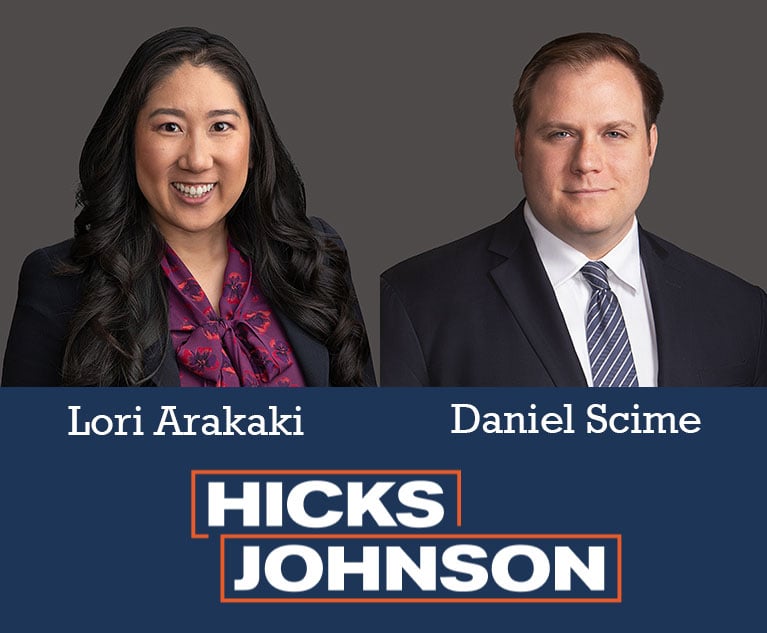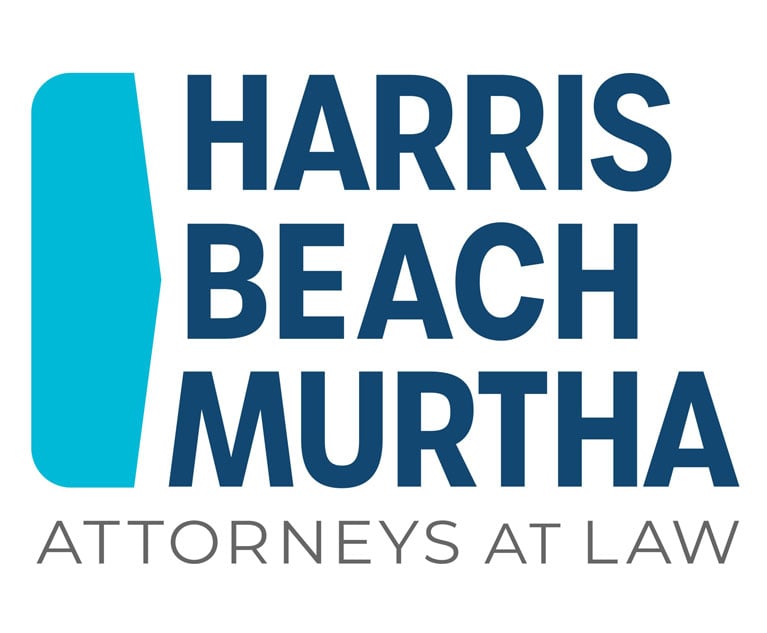US Supreme Court to Look at Corporate Liability Over Mosquito Bites
Mosquitoes now are at the center of a liability question the U.S. Supreme Court could consider for the first time Thursday: Should the Union Pacific railroad company have protected employee William Nami and other workers from the mosquitoes? In a 5-1 ruling, the Texas Supreme Court ruled in favor of the rail company. But courts are split on the issue.
May 10, 2017 at 04:53 PM
6 minute read
The original version of this story was published on National Law Journal
 Mosquitoes (Photo: Shutterstock)
Mosquitoes (Photo: Shutterstock)
Union Pacific Railroad employee William Nami worked for several months along the tracks in the small, rural town of Sweeny, Texas, the self-described “mosquito capital of the world.”
Roughly 55 miles from Galveston, the Gulf Coast winds attracted mosquitoes in humid summer months, and workers such as Nami, a 32-year-old veteran at the time, regularly swatted away the swarms. During his four-month stint there in 2008, Nami contracted the then-prevalent West Nile virus, a disease carried by these ubiquitous bugs.
As a result, according to his lawyers, he suffered from long-term memory loss and lack of physical strength. He is unable to drive, walk without a cane or accomplish everyday tasks, his lawyers said.
Those mosquitoes now are at the center of a liability question the U.S. Supreme Court could consider for the first time Thursday: Should the railroad, Nami's employer, have protected him and other workers from the mosquitoes?
The case could possibly take on special significance with the recent worldwide outbreak of the Zika virus, which is also transmitted by infected mosquitoes. Some experts have said, in context of this outbreak and federal warnings about the disease, that an employer's actions or inactions could give rise to a potential tort claim. The case against the railyard draws into question how much an outdoor workplace needs to consider the wildlife—in this case, bugs—and protect its employees from harm or injury. State Supreme Court rulings are split on the question.
On behalf of Nami, David Frederick of the Washington law firm Kellogg, Huber, Hansen, Todd, Evans & Figel filed a petition in the Union Pacific case. Neither Frederick nor J. Scott Ballenger of Latham & Watkins, a lawyer representing Union Pacific, responded to a request for comment.
In a 5-1 ruling, the Texas Supreme Court ruled in favor of the rail company. “Union Pacific did nothing to attract mosquitoes, indigenous to Brazoria County and all South Texas, to its small right-of-way, and it could do nothing to keep them out,” the court concluded.
Union Pacific argued that the “ferae naturae” legal doctrine, which limits liability for harm from indigenous animals, in this case mosquitoes, applied in Nami's case. The company also argued it had no duty to warn an employee of commonly known or commonsense hazards such as West Nile virus.
Nami sued Union Pacific under the Federal Employer's Liability Act, which protects and compensates railroaders injured on the job. The trial court's ruling had essentially split the baby and ruled that both Nami and the railroad were responsible—80 percent and 20 percent, respectively. That court awarded Nami about $750,000 in damages.
The appeals court in Texas leaned on the “ferae naturae” doctrine to overturn the trial court's decision. Under the logic of that court, Union Pacific did not need to provide long-sleeve shirts or repellent nor owe its workers a warning of prevention.
“Union Pacific certainly knew of the danger and warned its employees to protect themselves,” the Texas Supreme Court wrote. “Mosquito repellent and long-sleeve shirts might have reduced the number of bites, but neither would have prevented infection, and Union Pacific was not obligated to provide either.”
The Texas ruling marked a split from an earlier decision that presented almost identical circumstances.
That 2010 ruling, from the Nebraska Supreme Court, rejected Union Pacific's argument that the doctrine cited by the Texas court limited the duty to provide a reasonably safe workplace. The worker in that case had also contracted West Nile after working in a mosquito-infested area in Wyoming.
The petition filed to the Supreme Court by Nami's attorney warns, “Clarifying the correct liability rule for such injuries will have significant consequences for these railroad workers, their families and safety standards in the railroad industry.”
Attorneys for Union Pacific, also represented by Haynes and Boone, asked the Supreme Court not to take Nami's case. Their response in part argued the petition incorrectly states the railroad did not mow grass on the site and allowed pools of standing water to attract mosquitos, and therefore, “did nothing to increase the risk.” The response also reiterated that mosquitos are indigenous and the railroad “could do nothing to keep them out.”
Union Pacific's response goes on to argue the common law doctrine applied, “ferae naturae” is entrenched for “excellent reasons.”
“Without the protection of the doctrine, landowners would have only two options for avoiding liability: eradicating all wildlife from their land or warning every visitor about every hazard that one can encounter in nature,” Ballenger wrote in the opposition to Nami's petition. “The first option is hardly desirable, and neither option is feasible.”
The case is slated to be considered in conference by the Supreme Court on May 11.
Houston attorney J. Weldon Granger, who represented Nami in the underlying suit, said a key Supreme Court ruling—CSX Transportation v. McBride, from 2011—is key to the case. He and co-counsel at the firm Jones Granger eyed Frederick for the Union Pacific case because he had argued for Robert McBride in that high-court case.
The Supreme Court in 2011 said that under the Federal Employers' Liability Act a railroad is liable for employee's injuries resulting in whole or in part from negligence, “no matter how small.”
“The railroad has the responsibility to have a safe place to work,” Granger said.
He said the Union Pacific case gives the justices a chance to review existing law that protects railway workers or seamen. All employees do not fall under this specific rule, he said. Rather, those cases would be governed under a state by state statute and workers' compensation rules.
“If an employer had knowledge of a dangerous condition, I would hope they would have a law to protect their workers,” Granger said.
Erin Mulvaney, based in Washington, covers labor and employment. Contact her at [email protected]. On Twitter: @erinmulvaney
NOT FOR REPRINT
© 2025 ALM Global, LLC, All Rights Reserved. Request academic re-use from www.copyright.com. All other uses, submit a request to [email protected]. For more information visit Asset & Logo Licensing.
You Might Like
View All
Hours After Trump Takes Office, Democratic AGs Target Birthright Citizenship Order
4 minute read
Hicks Johnson Promotes Lori Arakaki and Daniel Scime to Firm Partnership
2 minute read
IAG Forensics & Valuation is excited to announce promotions at our firm effective 1/1/2025.
1 minute read
Trending Stories
- 1BOI Reports: What Business Owners and Attorneys Should Know
- 2SurePoint Acquires Legal Practice Management Company ZenCase
- 3Day Pitney Announces Partner Elevations
- 4The New Rules of AI: Part 2—Designing and Implementing Governance Programs
- 5Plaintiffs Attorneys Awarded $113K on $1 Judgment in Noise Ordinance Dispute
Who Got The Work
J. Brugh Lower of Gibbons has entered an appearance for industrial equipment supplier Devco Corporation in a pending trademark infringement lawsuit. The suit, accusing the defendant of selling knock-off Graco products, was filed Dec. 18 in New Jersey District Court by Rivkin Radler on behalf of Graco Inc. and Graco Minnesota. The case, assigned to U.S. District Judge Zahid N. Quraishi, is 3:24-cv-11294, Graco Inc. et al v. Devco Corporation.
Who Got The Work
Rebecca Maller-Stein and Kent A. Yalowitz of Arnold & Porter Kaye Scholer have entered their appearances for Hanaco Venture Capital and its executives, Lior Prosor and David Frankel, in a pending securities lawsuit. The action, filed on Dec. 24 in New York Southern District Court by Zell, Aron & Co. on behalf of Goldeneye Advisors, accuses the defendants of negligently and fraudulently managing the plaintiff's $1 million investment. The case, assigned to U.S. District Judge Vernon S. Broderick, is 1:24-cv-09918, Goldeneye Advisors, LLC v. Hanaco Venture Capital, Ltd. et al.
Who Got The Work
Attorneys from A&O Shearman has stepped in as defense counsel for Toronto-Dominion Bank and other defendants in a pending securities class action. The suit, filed Dec. 11 in New York Southern District Court by Bleichmar Fonti & Auld, accuses the defendants of concealing the bank's 'pervasive' deficiencies in regards to its compliance with the Bank Secrecy Act and the quality of its anti-money laundering controls. The case, assigned to U.S. District Judge Arun Subramanian, is 1:24-cv-09445, Gonzalez v. The Toronto-Dominion Bank et al.
Who Got The Work
Crown Castle International, a Pennsylvania company providing shared communications infrastructure, has turned to Luke D. Wolf of Gordon Rees Scully Mansukhani to fend off a pending breach-of-contract lawsuit. The court action, filed Nov. 25 in Michigan Eastern District Court by Hooper Hathaway PC on behalf of The Town Residences LLC, accuses Crown Castle of failing to transfer approximately $30,000 in utility payments from T-Mobile in breach of a roof-top lease and assignment agreement. The case, assigned to U.S. District Judge Susan K. Declercq, is 2:24-cv-13131, The Town Residences LLC v. T-Mobile US, Inc. et al.
Who Got The Work
Wilfred P. Coronato and Daniel M. Schwartz of McCarter & English have stepped in as defense counsel to Electrolux Home Products Inc. in a pending product liability lawsuit. The court action, filed Nov. 26 in New York Eastern District Court by Poulos Lopiccolo PC and Nagel Rice LLP on behalf of David Stern, alleges that the defendant's refrigerators’ drawers and shelving repeatedly break and fall apart within months after purchase. The case, assigned to U.S. District Judge Joan M. Azrack, is 2:24-cv-08204, Stern v. Electrolux Home Products, Inc.
Featured Firms
Law Offices of Gary Martin Hays & Associates, P.C.
(470) 294-1674
Law Offices of Mark E. Salomone
(857) 444-6468
Smith & Hassler
(713) 739-1250








